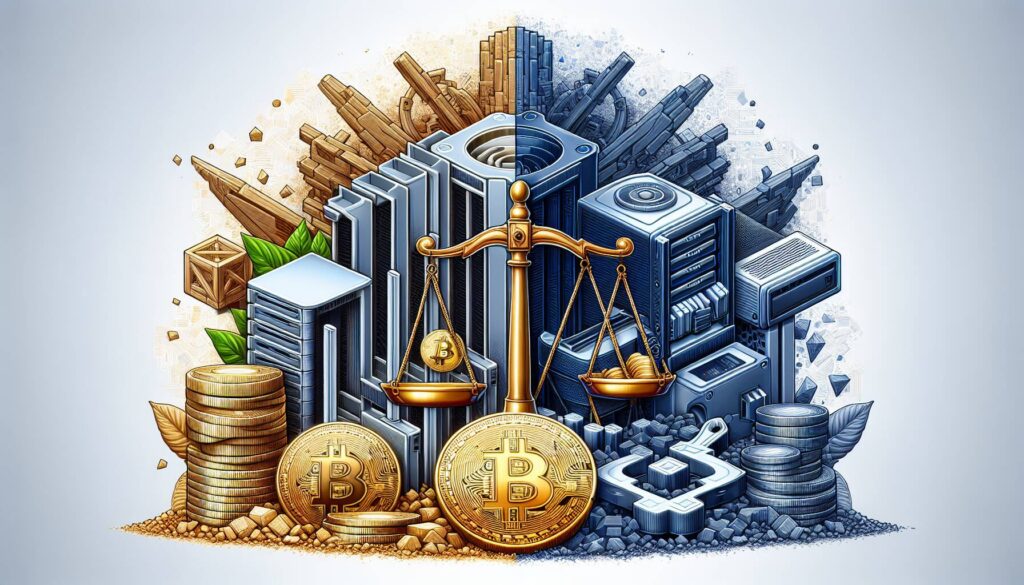In a striking turn of events that has captured the attention of the cryptocurrency community, James Howells, a man who lost a staggering 8,000 Bitcoin, now valued at approximately $900 million, is shifting strategies in his ongoing quest to reclaim his fortune. After years of scouring landfills and facing legal battles over the whereabouts of his lost hard drive, Howells has turned to the innovative concept of tokenization as a means to assert his claim on the assets he believes are rightfully his.
“I believe that by tokenizing my legal claim to the lost Bitcoin, I can explore new pathways to recover what was once mine,” Howells stated during a recent interview.
This pivot comes after more than a decade of searching for the hard drive, which contains the private keys to his digital wealth, buried in a landfill in Wales. The idea of creating a tokenized version of his claim not only highlights Howells’ determination but also showcases the evolving nature of cryptocurrency and its growing intersection with legal and financial frameworks.
Despite skepticism from some quarters, the potential of tokenization could provide a unique solution in clarifying ownership rights within the often murky world of digital assets. As discussions around the legal implications of such actions unfold, Howells’ journey signifies a pivotal moment not only for his personal quest but also for how lost or unclaimed digital currencies may be approached in the future.

Man Who Lost 8,000 Bitcoin Now Worth $900 Million Wants To Tokenize Entire Wallet
The story of James Howells and his journey to reclaim lost Bitcoin highlights several crucial points related to cryptocurrency ownership, technology, and legal claims.
- Lost Bitcoin Recovery Efforts
- Howells has been searching for a hard drive containing 8,000 Bitcoin for 12 years.
- His pivot to tokenization represents a novel approach to asserting claims on digital assets.
- Tokenization of Assets
- Introducing the concept of tokenizing his lost wallet may set a precedent for others in similar situations.
- This could impact how ownership and claims are recognized in the digital realm.
- Legal Implications
- Howells’ efforts may influence future legal frameworks governing cryptocurrency assets.
- Potential for creating legally recognized frameworks around lost digital assets.
- Public and Media Reaction
- The narrative has generated substantial public interest in recovery efforts and the nature of digital wealth.
- Online discussions reflect varying opinions about the feasibility of recovering the lost fortune.
The case underscores the evolving nature of property rights in the digital age, especially as cryptocurrency becomes more mainstream.
Lost Bitcoin and the Future of Tokenization
The saga of the man who lost 8,000 Bitcoin and is now worth $900 million represents a fascinating intersection of digital assets and innovative legal claims. As James Howells shifts from the daunting task of excavating a landfill to the more abstract concept of tokenizing his entire wallet, the financial landscape witnesses a potential shift in how lost digital assets can be claimed and valued.
Competitive Advantages: Howell’s pivot to tokenization could set a precedent for future claims on lost or inaccessible digital assets. Tokenization allows for creating a digital representation of a legal claim, making it easier to assert his rights in court or negotiate with potential buyers. This move empowers individuals in similar situations who may have lost access to their Bitcoin due to various circumstances, potentially transforming them into stakeholders in their own digital futures.
Disadvantages: However, there are significant hurdles to this approach. The legal framework surrounding cryptocurrency remains murky, and asserting a claim on something not physically retrievable introduces complexities that the courts may find challenging to navigate. Furthermore, the high volatility of Bitcoin’s market can erode confidence in such claims, possibly rendering the tokenized assets less valuable or legally binding in the eyes of the law.
This development could greatly benefit investors or individuals who have lost control of their Bitcoin. By seeing Howells take innovative steps, they may feel encouraged to explore their own options for recovery. Conversely, it could create problems for regulatory bodies which may struggle to keep pace with evolving digital asset legalities, resulting in confusion over ownership rights and asset recovery processes.

















